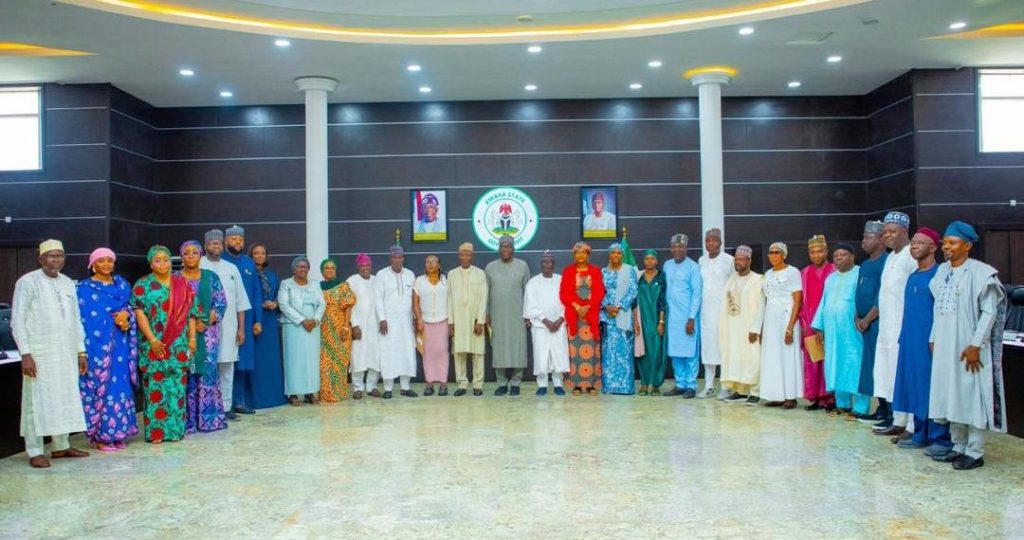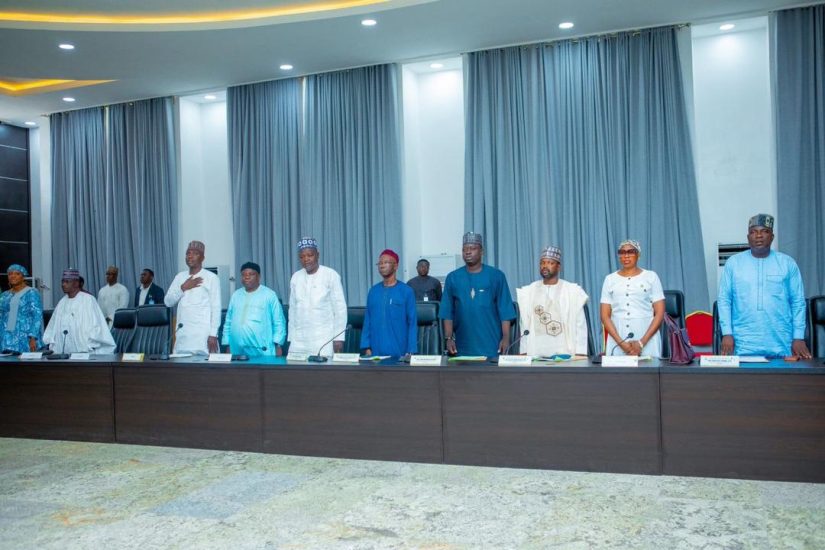
Daniel Otera
More than a decade after its establishment, the Kwara State Government has moved to dissolve Harmony Holdings Limited, the investment management company set up to oversee public assets following years of persistent financial underperformance and mounting liabilities.
At a recent executive council meeting chaired by Governor AbdulRahman AbdulRazaq, the state government resolved to scrap Harmony Holdings and revert all assets under its control to the Ministry of Finance Incorporated (MOFI). The council’s decision follows a review of the company’s financial status, which revealed an unsustainable pattern of losses despite repeated government interventions.
The dissolution marks a critical turning point in Kwara’s efforts to reform public asset management, with the state opting for a more centralized and accountable model under MOFI. This transition is expected to reduce overheads, curtail recurring bailouts, and restore value to government-owned investments that have remained largely unprofitable.
Harmony Holdings was established in 2012 under the administration of former Governor Abdulfatah Ahmed, with a mandate to serve as the custodian of Kwara State’s commercial assets. It was designed to function as a government-owned conglomerate with private-sector efficiency. Over 20 public corporations and state-owned companies were placed under its control, spanning transport, insurance, real estate, agriculture, and hospitality.

According to public records and available reports, the state government capitalised the company with ₦2.5 billion. Subsidiaries such as Harmony Transport Services, Harmony Insurance Brokers, and Harmony Investment and Property Development Company were among the firms managed under its umbrella.
However, more than a decade after its creation, Harmony Holdings has struggled to deliver on its original objectives. Financial performance data presented at the executive council meeting paints a stark picture. Only Harmony Securities Limited reportedly achieved consistent profitability, while other subsidiaries remained heavily dependent on the state for survival.
The council was informed that successive administrations had provided periodic bailouts, grants, and loans to the company. Yet, these injections failed to result in long-term viability. A review of the company’s 2022 and 2023 audited financial statements, as referenced by the Ministry of Finance, revealed liquidity challenges across most subsidiaries.
Specifically, the use of the quick ratio, a metric for assessing a firm’s ability to meet short-term obligations, showed that many subsidiaries performed below the industry benchmark of 1:1. This means the firms were unable to meet their liabilities without resorting to state assistance or asset disposals.
Reports by credible local media, including The Informant247, suggest that some properties under Harmony Holdings were sold or leased out without clear documentation or proof of revenue remittance to the state treasury. While the company reportedly remitted ₦30 million to the government, official documentation confirming the claim has not been made public.
The closure of Harmony Transport Services formerly Kwara Express in late 2022 was widely seen as emblematic of the company’s structural decline. At the time, the state government cited persistent operational losses and the need for a complete restructuring of the transport arm.
The Kwara State House of Assembly also raised concerns about the company’s transparency and poor revenue performance. During oversight visits in recent years, lawmakers criticised Harmony Holdings for what they described as “low returns on public investment”.
Kwara State’s move is not an isolated case. Across Nigeria, several states have set up investment holding companies to manage their public enterprises often modelled loosely on the Nigerian Sovereign Investment Authority (NSIA). These entities were expected to operate commercially and remain insulated from political interference.
However, evidence suggests these goals have been largely unmet. According to the International Monetary Fund (IMF), governance and performance challenges are prevalent among Nigeria’s state-owned enterprises (SOEs), particularly at the sub-national level. A 2019 IMF country report highlighted fragmented oversight, weak financial transparency, and political appointments as major impediments to performance.
A 2022 IMF working paper found that up to 40% of SOEs in Sub-Saharan Africa including Nigeria were unprofitable, illiquid, or overleveraged. Many depended on government subsidies to stay afloat. The paper noted that board independence and the presence of performance incentives were among the key determinants of sustainability.
Even at the federal level, reform is underway. In April 2025, the Federal Government and the World Bank launched a Corporate Governance Scorecard under MOFI, aimed at strengthening accountability, ethical compliance, and strategic performance across public investment entities.
Despite such initiatives, state-level investment firms continue to face three entrenched challenges:
Weak Corporate Governance: Board appointments are often politically motivated rather than based on merit, undermining effective oversight.
Poor Transparency: Many entities lack timely and complete financial audits, making public accountability difficult.
Limited Market Competitiveness: Without private capital discipline or skilled management, most struggle to operate efficiently or scale.

In effect, what was intended to improve fiscal efficiency has often resulted in more bureaucracy and less accountability. Development partners and governance watchdogs have repeatedly called for reforms, warning that poorly governed SOEs may become financial liabilities instead of revenue generators.
In Kwara’s case, the government’s decision to transfer Harmony Holdings’ assets to MOFI reflects a growing realisation that the holding company model as currently structured may not be sustainable. MOFI, which operates under the state’s Public Finance Management Law, is expected to function with clearer oversight, direct asset control, and lower administrative costs.
Unlike Harmony Holdings, which operated through multiple subsidiaries with minimal central coordination, MOFI is designed as a statutory investment agency with authority to manage government properties, investments, and equity interests across sectors.
The executive council’s resolution has been forwarded to the Kwara State House of Assembly for legislative approval. Once ratified, all assets previously held by Harmony Holdings will be returned to MOFI, which will also assume responsibility for the firm’s obligations and liabilities.
The dissolution of Harmony Holdings presents an opportunity to rethink how public investments are structured and managed in Kwara State.
